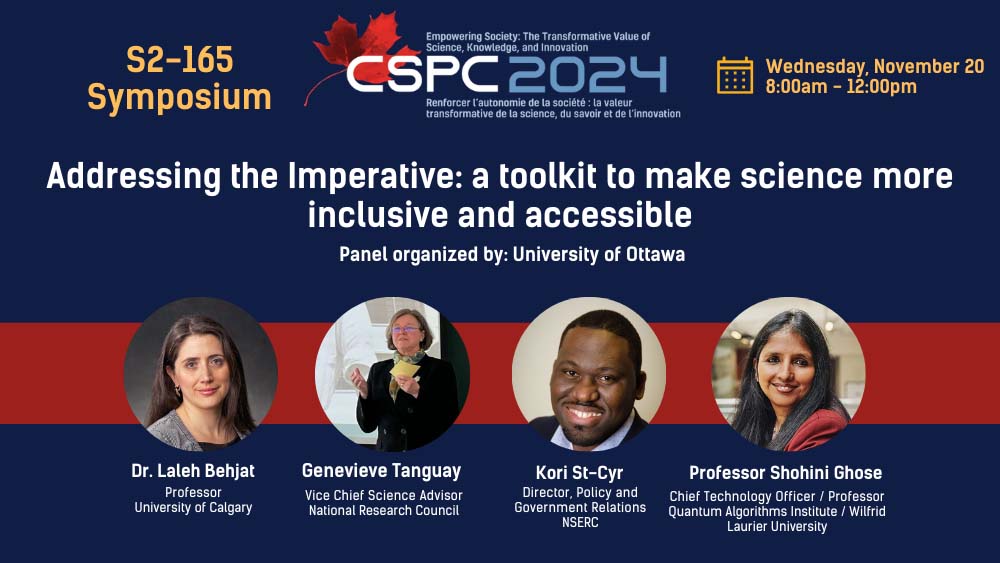Abstract:
Fostering a dynamic and innovative science and engineering landscape is imperative in the 21st century. The twin digital and biotechnology revolutions and pressing issues related to climate change have shown the need for STEM professionals to go beyond technical skills to develop awareness of the ethical implications of scientific and technological advancements; develop new ways to communicate the construction, results, impact and significance of their work with society; and inform policymakers of the impact of their work on evolving policies. This panel will discuss the need for a program that equips STEM professionals with tools to address these new challenges.
Summary of Conversations
The panel addressed challenges such as climate crisis, biotechnology, and AI, emphasizing the need to translate scientific knowledge into public discourse and policy. A quantum strategy case study highlighted the journey from initial researcher gatherings to government policy, revealing the complexities of policy implementation. Discussions underscored the initial lack of diversity and EDI focus in technology development, contrasting it with later grassroots efforts to build a more inclusive ecosystem. The conversation stressed the role of scientists as citizens who can engage in the democratic process by advising parliament, connecting with MPs, and participating in science-based departments and agencies.
Take Away Messages/ Current Status of Challenges
Here are some key take away messages:
- Science and research are fundamental, yet public scientific literacy is often lacking.
- Traditional technology development approaches often overlook EDI, centering on a false notion of meritocracy.
- Grassroots advocacy is essential for influencing policy beyond top-down leadership.
- Budget allocation often fails to reflect the holistic needs of research, such as social sciences.
- Engaging with policy makers requires understanding their communication styles and needs.
- Climate crisis and emerging technologies like AI and biotechnology introduce complex challenges needing scientific input.
- There’s a need to broaden the definition of diversity in science, incorporating experiences and knowledge from humanities and social sciences.
- Successfully influencing policy requires coordinated efforts involving researchers, universities, and other stakeholders.
Recommendations/Next Steps
Here are some recommendations to improve the current status:
- Scientists should actively engage in democratic processes by advising parliamentary committees and communicating with elected officials.
- Engage science-based departments and agencies to inform policy and regulations.
- Develop skills to effectively communicate the impact of research to decision makers.
- Support youth councils to ensure that younger generations have a voice in policy making.
- Advocate for increased funding for social sciences and humanities to complement STEM research.
- Focus on societal outcomes and question assumptions of meritocracy in the research process.
- Build grassroots movements to promote EDI within scientific hubs and advocate for policy changes.
- Use personal stories and relatable examples to connect with policymakers, demonstrating the real-world impact of scientific research.
* This summary has been generated with the assistance of AI tools


